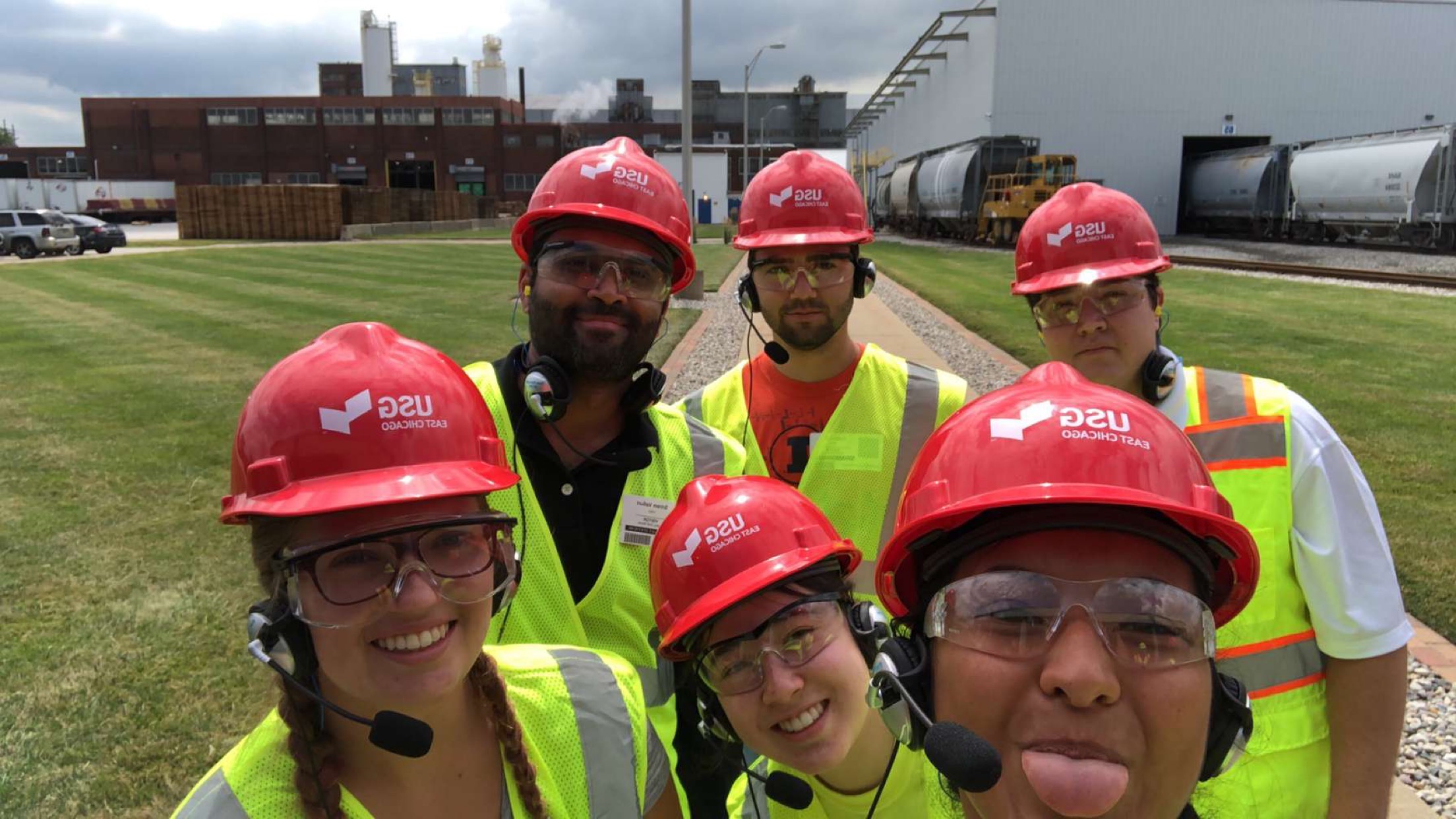
I worked in the Performance Substrates Laboratory at the USG Corporate Innovation Center (CIC) and was tasked with:
- Developing a new lightweight cementitious structural panel that would be 25% lighter than the current panel sold while retaining its strength
- Formulating those cementitious compositions
- Identifying and characterizing the mechanical and rheological properties of the formulations
- Creating predictive models based on data analysis
- Improving the current QC procedure for the manufacturing plant from predictive models
Results:
- Developed a new panel that was nearly 13% lighter than the current panel
- Created a multivariate full factorial design of experiments
- Obtained substantial data on compressive strength, linear movement, viscosity, torque, etc, on each formulation
- Created a predictive model for viscosity and slump size
- Created a new QC procedure for the manufacturing plant using my predictive model that is now being implemented
- Presented in front of the entire CIC faculty, as well as the VP, on my work and submitted a 19-page final report
Watch what the CIC is all about
I performed a multivariat full factorial DOE to study the effect that varying factors of the cementitious composition would have on the panel. I studied three factors: one at five levels and two at three levels. Overall, I tested 45 formulations in 9 labcasts and 9 rheological tests. Labcasts entailed 5 different types of tests that studied the mechanical properties of the slurries. The rheological tests focused on the flow of the slurry, such as viscosity.
I used the Instron SATEC machine, the MTS Criterion machine, the Brookfield rheometer, the Viskomat viskometer, and many molds for my testing. I was taught by my coworkers how to use the machinery for the first round of tests. I was then tasked with completing the rest on my own, as well as troubleshooting it by myself to the best of my ability.
Towards the end of my testing and beginning of my data analysis, I was told that the current QC test procedure was not as accurate as it could possibly be. Although I wasn't originally presented this objective, I took it upon myself to come up with a better plan for the plant. I visited the manufacturing plant that currently produces the structural panels and learned about the old procedure. From there, I decided to use what I analyzed from my data to make a critical evaluation about what is optimal for the plant (ie. what is easiest to due yet accurate).
I relied heavily on Minitab and Excel for my evaluation of my testing and had to do a lot of my own research to learn how to effectively use the software. I had to create many plots evaluating each combination of factors that I studied. Ultimately, I condensed it into one graph to present to my superiors and coworkers. I also created 3D plots to visually present the effects the inputs had on the outputs we were researching.
Furthermore, I made predictive models of certain slurry characteristics. These models were then implemented in my suggested QC procedure for the manufacturing plant, alongside certain equipment. After having proposed this QC method, the manufacturing plant soon began implementing it with great success.
I presented my work in front of the entire CIC faculty in a 15 minute presentation with another 15 minutes decaded to Q&A. I designed specific graphs from my analysis for this audience so they could best understand the results. After my presentation, I dedicated my last week at USG writing a final research report on my findings. The 19-page paper was then saved within the company's internal research database.

return to projects page